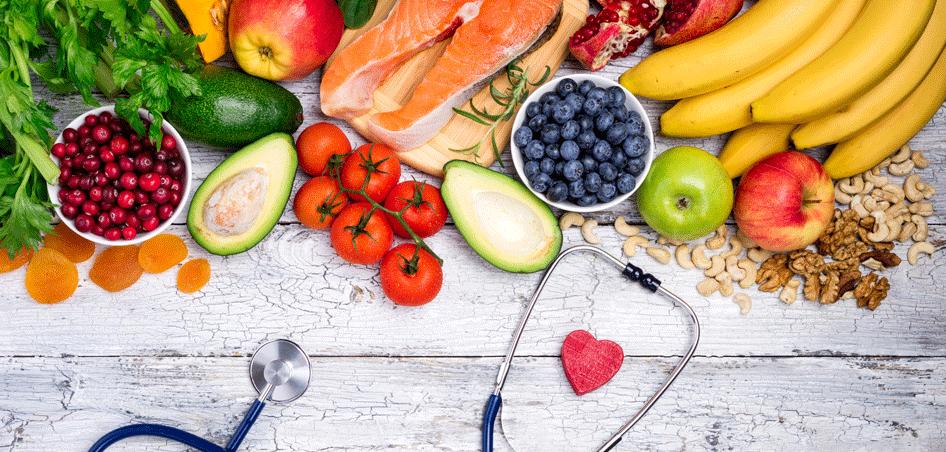Diet is the "big thing" of life! Due to the increasing incidence of cancer year by year and the extremely high mortality rate, many people have set their sights on the "anti-cancer diet". So, are there really "anti-cancer foods"? Can "anti-cancer food" prevent the invasion of cancer? Xiaobian summarized the 5 major problems of "anti-cancer food" that people care about, let's take a look at it!

1. Is there a food that can prevent cancer from invading or recurring?
The answer is no. Even if some foods can effectively reduce the risk of cancer, but it is not guaranteed to prevent cancer 100%, hoping that a certain food to prevent cancer can only be "delusional" in the end!
2. Can I prevent cancer through diet?
The answer is yes. A reasonable diet can effectively reduce the risk of cancer.
3. What foods have "anti-cancer" effects?
Previously, the American Cancer Institute released evidence that vegetables, fruits, whole grains, legumes, etc. can reduce the risk of many cancers.
Specific foods include: apples, blueberries, broccoli and other cruciferous vegetables, carrots, cherries, coffee, cranberries, dark green vegetables, legumes (peas, lentils), flaxseeds, garlic, grapefruit, grapes and grape juice, winter pumpkins, tea, tomatoes, walnuts and whole grains.
4. Can eating a lot of anti-cancer foods fight cancer?
The answer is no! Even if it is a food with anti-cancer effect, excessive and blind consumption will cause only one result, that is, it will lead to excessive intake of nutrients in the body and other diseases.
For example, cruciferous plants such as broccoli have anti-cancer effects, but excessive intake of broccoli increases the risk of goiter.
5. Can an all-vegetarian diet prevent cancer?
The answer is no. The protein content in vegetarian food is low, which is easy for people to overeat and increase the burden on the stomach. Therefore, long-term vegetarian diet not only does not prevent cancer, but may also increase the risk of stomach cancer.
The most important thing about an anti-cancer diet is a reasonable combination. At present, the healthy diet promoted in the world is the Mediterranean diet, and its diet is most important to three characteristics, the use of virgin olive oil, more recommended dried fruits and seafood, drinking a certain amount of red wine. The most important thing about the Mediterranean diet is the intake of fresh fruits, vegetables and fish.
However, the Mediterranean diet was proposed based on the eating habits of Europeans, and it was inevitable that Chinese there would be places where they were not used to it. To this end, the "Scientific Research Report on Dietary Guidelines for Chinese Residents (2021)" introduced the Jiangnan diet.
The Jiangnan diet is characterized by more vegetables and fruits, more fish and shrimp aquatic products, frequent consumption of dairy and soybean products, appropriate amounts of cereals and meat and poultry, and light cooking and less salt.
Previously, some relevant people summed up jiangnan diet as "five more and three less":
- More white meat: In the choice of meat, try to choose white meat such as chicken, duck, goose and fish, mainly lean meat, and less fat meat.
- Nuts: Nut foods are rich in nutrients, high in fat, rich in protein, rich in vitamins and minerals, and are of great significance to people's health.
- Multi-coarse grains: The Dietary Guidelines for Chinese Residents recommend that the daily intake of coarse grains and whole grain products per person is 50 to 100g (accounting for 1/4 to 1/5 of the staple food).
- Multi-fruit and vegetable: The Dietary Guidelines for Chinese Residents recommend that there are vegetables in the meal, 300-500 grams of vegetables per day, and 1/2 of dark vegetables (including dark green, red, orange-red, purple-red vegetables); it is recommended to consume 200-350 grams of fresh fruits per day.
- More steaming: Daily stir-frying can be used as much as possible to use fast frying, stewing, steaming, white burning, etc., which can also maximize the preservation of the original taste and nutrition of food.
- Less frying: Although fried food tastes better, it is easy to cause too much fat, and fried food will make it lose nutrients, so the diet must be less oil.
- Less sweet: Consuming too much sugar not only disrupts the intestinal flora, weakens the intestinal barrier function, reduces intestinal immunity, and may also increase the risk of diabetes.
- Less polished rice: If you eat all the foods made of refined white flour, the vitamin B1 and vitamin B2 obtained in a day are only equivalent to 15%-25% of the daily needs; the refined white treatment will lose about 70% of the vitamins and minerals in rice and wheat, as well as more than 90% of the dietary fiber.
In addition, cancer prevention can not only rely on diet, but also require people to exercise reasonably, sleep regularly, and maintain a good mood; the most critical thing is that it is necessary to conduct regular anti-cancer physical examinations. Targeted anti-cancer physical examination is conducive to early cancer detection, especially high-risk groups such as middle-aged and elderly people, smokers, frequent alcoholics, and blood relatives with cancer, and regular anti-cancer physical examinations should be done.